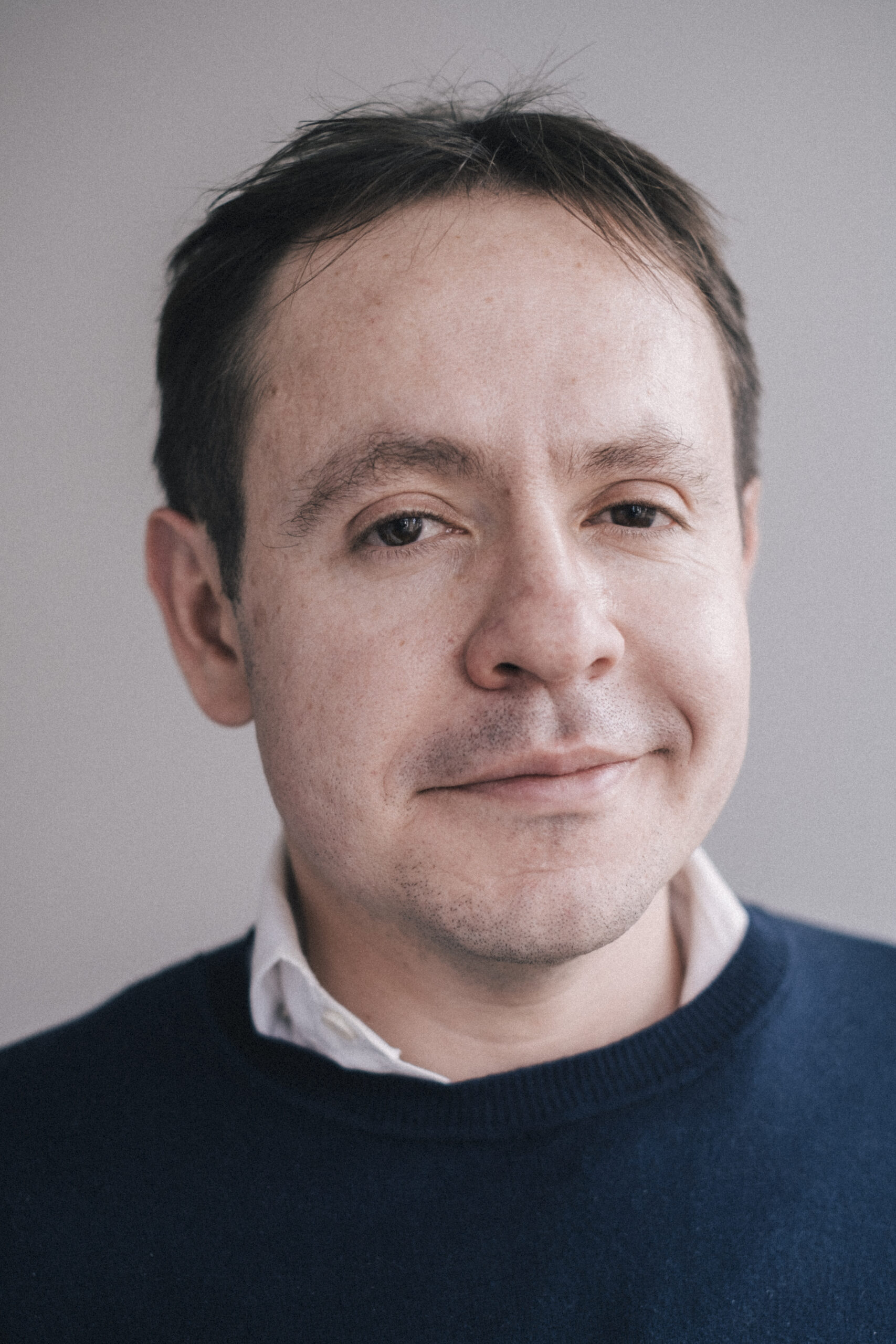For September’s edition of “Portraits of FoE Defenders,” Marija Šajkaš, CGFoE’s Senior Communications Manager, is in conversation with El Veinte Co-Founder Emmanuel Vargas Penagos on the state of freedom of expression in Colombia and broader Latin America, El Veinte’s recent constitutional court victory, and a flood of online attacks that followed.
Emmanuel Vargas Penagos is the co-founder and co-director of El Veinte, a Colombian NGO dedicated to defending freedom of expression and digital rights. He is also a PhD researcher in AI and Law at Örebro University in Sweden, focusing on the Human Rights implications of automated content moderation. A lawyer from Los Andes University with an LLM in Information Law from the University of Amsterdam, Vargas Penagos worked with organizations like UNESCO, Media Defence, the Inter-American Commission on Human Rights, and the Foundation for Press Freedom in Colombia. His recent publications include “ChatGPT, can you solve the content moderation dilemma?” and “Platforms on the hook? EU and human rights requirements for human involvement in content moderation.”

Emmanuel Vargas Penagos is the co-founder and co-director of El Veinte, a freedom of expression NGO in Colombia, and a PhD researcher in AI and Law at Örebro University, Sweden. Photo: Courtesy of Emmanuel Vargas Penagos.
Marija Sajkas: Looking at global news, one might conclude that human rights are under siege worldwide. How would you describe the state of freedom of expression in your region, and in what ways does it shape your work?
Emmanuel Vargas Penagos: The state of freedom of expression in Latin America and especially in Colombia is not good. We have a long history of violent attacks on journalists, on human rights defenders, on protesters, and activists across the country. At the same time, we also have a growing judicial harassment that is coming from businesspeople and high-level government officials. This is coupled with a really big problem of stigmatization coming from high-ranking officials, including, nowadays, the President of the Republic. All of this creates an awful environment for freedom of expression in Colombia. Across Latin America, governments have weaponized their communication tools to target the press, as well as anyone investigating or exposing possible corruption, financial mismanagement, or human rights abuses. And this has also come with legislative reforms or political pressure that, in many cases, hinders the possibility of journalists and civil society organizations to do their work.
Could you please give us some examples?
In Peru, for instance, there is a recent “foreign agent” law that aims to limit the possibility of international funding for news media outlets operating independently without government oversight. And we can also see it in countries like Nicaragua or Venezuela, where the governments have taken power almost in a permanent manner. This coincides with the introduction of laws such as “foreign agent” legislation and measures ostensibly aimed at punishing hate speech—yet without offering clear definitions of what “hate” or “hatred” actually mean, leaving space for broad and arbitrary interpretation. In addition, the number of killings of journalists in countries like Mexico is still striking and devastating. And in Colombia, although we don’t have that same number, we can say that the country has returned to a violent scenario, with at least one or two journalists being killed annually in the last five years.
Finally, the president of Colombia uses his Twitter account to criticize all publications that denounce his work or report against his government. In turn, this usually signals that the media is a political adversary. The moment in which many of us in Colombia considered that a threshold was reached was when the president referred to women journalists as muñecas de la mafia, which in English translates to “mafia dolls.” Now, for people outside Colombia, this may not mean much, but in the Colombian context, it’s a very stigmatizing word because it signals that women are practically sex workers. Working for the mafia.
I am sorry, but did the president apply that label to particular women journalists, or was it a broader characterization of female journalists as a whole?
This was done without referring to anyone in particular. It was a very broad expression. The president just said the muñecas de la mafia have created a narrative against him. This triggered a huge number of attacks against all women journalists, a big portion of which were on social media. So, people started referring to female journalists as muñecas de la mafia. This was more than six months ago, but it still happens that if a woman journalist publishes something, people will respond to her in that derogatory manner. We at El Veinte, alongside FLIP, the Foundation for Press Freedom, are representing a group of 19 women journalists who didn’t like what was happening and who decided to file a case against the president. This case is ongoing before the Constitutional Court, where we are seeking an order requiring the president to retract his statements, issue a public apology, and complete a course on freedom of expression.
This sounds both innovative and courageous. I was wondering how your work, as well as the work of El Veinte, has changed in the current political climate.
Well, I will give you an example. El Veinte filed a constitutional challenge in 2021 against an article of a law that regulates net neutrality in Colombia. This law aligned with international experiences and most of what has been said at the Inter-American Commission. But it established an exception to all those protections by saying that telecom companies were allowed to provide specific offers to personalized users and to the different segments of the population. In practice, this allows zero-rating plans in Colombia. Zero-rating is a very divisive topic within telecommunication discussions, because some people consider that this is something that helps improve connectivity. But at the same time, there are other people who consider that it doesn’t allow meaningful connectiveness, and I agree with them. So it is a plan that maybe gives you mobile internet access for a short period or a short amount of data. But after that, the only internet access that you have is through these pre-selected applications like WhatsApp, Facebook, Instagram, etc. And this is usually done with a commercial interest and that’s what happened in Colombia.
We challenged that provision of the law for violating pluralism, constitutional protections against monopolies in the use of the electromagnetic spectrum, and the right to privacy by allowing companies to profile and segment users based on their internet activity. The case lasted nearly four years before the Constitutional Court—much longer than other high-profile cases, such as the abortion ruling, which took only one year.
On May 29, 2025, the Court ruled in our favor, declaring zero-rating unconstitutional and granting one year for the judgment to take effect. The Court issued only a brief statement shared via WhatsApp, after which we announced the decision on social media. This triggered a wave of attacks against Ana Bejarano, El Veinte’s co-director, against our team and me, accusing us of harming Colombians by cutting off “free” access to platforms like WhatsApp and Facebook, even though these zero-rating plans were the very issue under challenge.
Instead of being sold as something that increases the cost for internet access and for meaningful internet access, they are sold as plans that provide free access to WhatsApp. This is something that causes a lot of fear, and it’s a narrative that is very harmful for the sole understanding of people’s rights. And yes, these attacks were very intense and they went beyond insults.
Just to clarify, are these primarily social media attacks, or do they take another form? And is there any evidence suggesting they might be coordinated?
They occur mostly on X, but there were also some videos on TikTok, and my colleagues and I received direct messages from an Instagram account threatening to attack us on the street if they saw us. What I noticed is that the most prominent narratives were the same ones promoted by the telecom companies during the constitutional proceedings. I wouldn’t say these were directly pushed by them, but they certainly amplified the message, especially in traditional media, and it then spread on social media.
At the same time, the problem in Colombia is the known existence of troll farms paid by political actors. They may be monitoring what content is useful to them for promoting hate against particular groups and advancing their own agendas. Among those involved, the only clear case we identified of someone directly using this as a political tool was presidential candidate Daniel Quintero. He published a video with a clear lie, claiming we filed this constitutional challenge to disconnect people and force them to rely only on traditional media, thereby preventing access to what he called “the truth” on social media about the government, which he supports. He also claimed this effort was linked to another specific candidate, alleging we were aligned with that candidate.
Can you tell us about the severity of attacks?
From what we are able to tell, this is something like 350,000 messages between May 30 and June 4, 2025, which was the peak of the attack. 350,000 messages. Across the platforms.
What was the response from the platforms? Did X take any of the content down? Did TikTok remove any of it?
No. We filed reports on X, flagging some of the most prominent posts, and the only ones that were taken down were those that included pictures of us. The others—posts that contained only threats or insults without images—were not considered problematic or in violation of the rules.
You mentioned that your colleague and co-founder of El Veinte, Ana Bejarano, was also attacked. Do you think, in her case, we can speak of gender-based violence?
Yes, I would say it’s a combination of gender-based violence and political violence. She is well-known as a columnist—she writes a weekly column in a widely read publication—and like many women journalists in Colombia, she often receives hateful reactions to her work. In this instance, people with hostile views toward women journalists seemed to see an opportunity to target her, and the attacks quickly escalated. Most of them carried a clear gendered component.
Like so many human rights defenders today, you seem to be going through a lot. Where do you find strength?
I find strength in knowing that this is a meaningful fight. I also draw inspiration from mentors and people I admire who have walked the same path and who believe I’m doing good work. Strength also comes from the allies and friends who thank us for our support or seek us out for help, seeing us as a resource to solve their problems. The fact that I don’t have to chase people to offer assistance, but instead they come to me, reassures me that my work and my perspective are needed.

